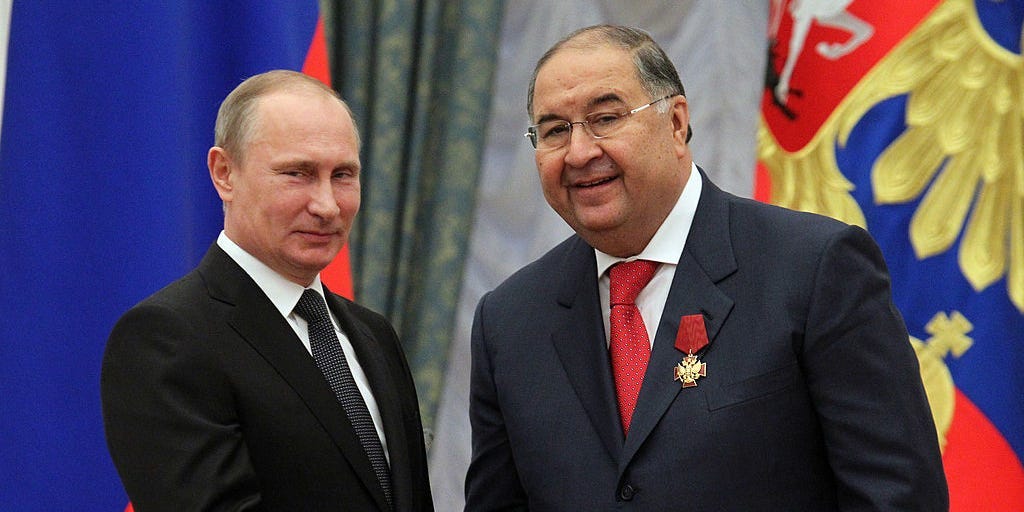- As Russia invades Ukraine, the West has imposed sanctions on the country's wealthy elite.
- Billionaires hide portions of their wealth abroad, which some say makes the West responsible.
- Insider spoke to experts about the possibility of the West enabling Russia's oligarchy.
Western powers such as the US, the EU, and the UK have mobilized against Russia's elite, anticipating that financial sanctions against the country's oligarchs could encourage Vladimir Putin to end his invasion of Ukraine.
"We are coming for your ill-begotten gains," President Joe Biden said during his State of the Union address last month, announcing a task force focused on the crimes of Russian oligarchs.
But one question lingers: How, if at all, did the West itself empower Russia's oligarchy?
Some argue that the West turned a blind eye as billionaires took advantage of loopholes.
After the fall of the Soviet Union in 1991, Russia carried out the privatization of state-owned industries, often in a corrupt manner that allowed politically connected players to quickly gain wealth and power.
And, according to the liberal media platform More Perfect Union, a bulk of their wealth is stored in offshore tax havens and companies through loopholes in Western governments — a defensive move to protect their money from sanctions.
—More Perfect Union (@MorePerfectUS) March 14, 2022
Ben Judah, a foreign policy analyst and journalist, argued in the video that the US and Europe turned a blind eye when Russia's richest figures took advantage of policy loopholes, used shell companies to hide who owns what, and found ways to dodge taxation.
Judah also noted that European and American billionaires use the same systems to hide their wealth.
"We have an opportunity right now to shut down this shadowy world of offshore finance. It's not just a way to pressure Putin's Russia – it's also a way to make sure oligarchs from around the world have less control of our economy and politics," he argued
Though Russia's billionaires may not be as powerful as they once were, their influence still exists.
Since Putin became president of Russia in 2000, Russia's elite has lost the majority of their influence, William Courtney, an adjunct senior fellow at RAND Corporation and a former U.S. ambassador, told Insider.
Courtney also told Insider that it's much more accurate to call these billionaires "tycoons" of certain industries — such as coal, oil, and energy — at this point in history, arguing that while they still have economic influence they do not have much sway over politics.
Simon Miles, an assistant professor of Slavic and Eurasian Studies at Duke University, said that as Putin rose to power he aimed to reel in the oligarchs and limit their political influence.
"The basic deal was that they could keep their wealth in exchange for subservience," Miles told Insider.
"This is less the formal meaning of oligopoly because they are dependent on the government — some might say hostages to it — as well as exercising enormous influence," he added.
The tycoons are, essentially, less powerful than Putin — but still powerful enough to exploit others.
